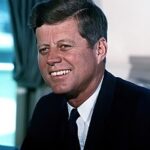The Fateful Diem Coup Approval
President Kennedy’s tacit approval of the military coup against Ngo Dinh Diem changed Vietnam forever. On November 1, 1963, South Vietnamese generals overthrew their president with American knowledge. The Diem coup approval came after months of Buddhist protests and political unrest. Kennedy’s administration believed Diem had become a liability in fighting communism. ⚠️ The decision would prove catastrophic for both nations.
Background to the Crisis
Diem’s authoritarian rule had alienated South Vietnamese citizens since 1955. His Catholic government oppressed the Buddhist majority through discriminatory policies. The Buddhist crisis of 1963 saw monks self-immolate in protest. International media coverage embarrassed the Kennedy administration. U.S. officials grew frustrated with Diem’s refusal to implement democratic reforms. 📊 American aid totaled $1.4 billion under Diem’s regime.
The Decision Process
Ambassador Henry Cabot Lodge Jr. coordinated with Vietnamese generals planning the coup. The State Department sent mixed signals about American support. Kennedy never explicitly ordered Diem’s assassination but approved regime change. The president hoped new leadership would stabilize South Vietnam. 💰 Economic and military aid continuation depended on governmental cooperation with U.S. objectives.
Impact:
Immediate Political Chaos
The Diem coup approval created immediate governmental instability in South Vietnam. General Duong Van Minh’s military junta lasted only three months. Seven different governments ruled Saigon between 1963 and 1965. Each regime change weakened South Vietnamese resistance to communist forces. 🔥 The Viet Cong exploited political chaos to expand territorial control significantly.
Escalation of American Involvement
Political instability forced deeper U.S. military commitment in Southeast Asia. American troop levels increased from 16,000 advisors to 184,000 combat soldiers by 1965. The power vacuum required direct American intervention to prevent communist victory. President Johnson inherited Kennedy’s Vietnam dilemma after the Dallas assassination. 📉 Public support for the war declined as casualties mounted steadily.
Long-term Historical Consequences
Kennedy’s decision fundamentally altered the trajectory of the Vietnam conflict. The coup eliminated America’s primary Vietnamese ally and legitimized future interventions. South Vietnam never achieved stable governance after Diem’s assassination in 1963. The decision contributed to America’s longest and most controversial military engagement. 🌍 International relations suffered as allies questioned American commitment to democratic principles worldwide.
Lessons for Presidential Decision-Making
The episode demonstrates the unintended consequences of covert foreign policy actions. American presidents learned that regime change rarely produces desired political outcomes. Intelligence agencies gained increased influence over executive branch foreign policy decisions thereafter.
